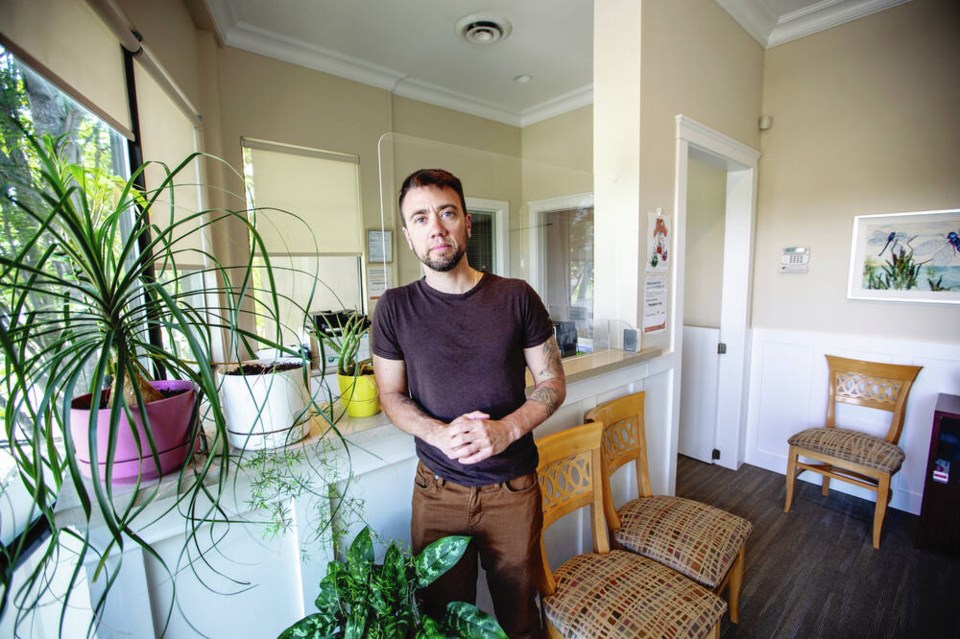Relaxed COVID restrictions, a more receptive atmosphere for victims of sexual assault to speak out and a series of allegations levelled at individuals are likely behind the spike in reports of “level one” sexual assault in Victoria in 2021.
Victoria police say there’s no one reason the Crime Severity Index shows a surge in reports of sexual assaults last year, but rather there’s a series of factors that led to Victoria seeing a 90 per cent increase in sexual assault reports compared with 2020.
Statistics Canada, which compiles the severity index annually, said there were 227 reports of level one sexual assault last year, up from 120 in 2020.
Level one, which makes up 98 per cent of all sexual assault cases in the country, involves assault that violates the sexual integrity of a victim. Level two is sexual assault with a weapon or that causes bodily harm and level three involves sexual assault that wounds, maims, disfigures or endangers the life of the victim.
Victoria’s incident numbers follow a disturbing trend.
B.C. had 4,459 reports of sexual assault in 2021, an increase of 15 per cent over the year previous, and Greater Victoria saw an increase of 50 per cent to 474 incidents.
Across Canada there were just over 34,200 reports of sexual assault in 2021, an 18 per cent increase in level one sexual assault year-over-year and the highest rate since 1996.
When asked why Victoria has seen such an increase, Victoria police spokesman Const. Cam McIntyre said the department had some notable cases that included multiple complaints about certain individuals.
Last year, for example, Victoria police arrested and charged Jesse Paul Chiavaroli, a former employee of Chuck’s Burger Bar. He was charged with sexually assaulting four women and assaulting a fifth woman.
McIntyre said there were also several reports of assault as a result of a return to night life in the downtown as COVID restrictions were relaxed and nightclubs and bars started to do business again.
“We see a lot of sexual assault-type files, inappropriate touching and things of that nature that come from nightlife and drug and alcohol intoxication,” he said. “We saw a return to nightlife in downtown Victoria, so as expected, we saw an increase in the number of those types of files.”
McIntyre said while the increase is disturbing, some of the reports may be due to victims feeling safer and more comfortable in coming forward.
He said the department hopes survivors of sexualized violence, given the increased awareness on social media and efforts to make the Victoria Police Department more welcoming, are more inclined to come forward and have their complaints investigated.
“Culturally we’re in a moment where we’re seeing more and more people comfortable speaking with police and there’s an understanding that we have the people in our special victims’ unit, some of the finest detectives that we have, that are very well trained in trauma-informed interviewing,” he said. The department also works closely with the Victoria Sexual Assault Centre.
Elijah Zimmerman, executive director of the centre, said the numbers released by Statistics Canada align with what they are seeing.
Last year, the centre provided about 300 counselling sessions.
He said the fact there is now a better platform for people to come forward and report sexual assault, and an understanding that they will be believed and there is support available, is likely playing a part in the increase.
But he also noted the pandemic lockdown periods caused stress. “And we do know that in those kinds of stressful periods, gender-based violence does increase.”
Zimmerman acknowledged the re-opening of nightclubs and bars may have created opportunity for sexualized violence to occur, but he noted sexualized violence also occurred during COVID lockdown.
He said the numbers do point to one obvious thing — that more resources are needed for support and for prevention.
“Prevention is a huge area that we need more resources in our communities. I think almost everyone can agree let’s prevent violence before it starts,” he said. “I’m very glad that we’re here to support people when it does happen, but certainly more resources toward prevention could be huge.”
The centre’s focus is on dealing with the aftermath of assault, and its $2 million annual operating budget goes to fund its 32 staff who mostly provide crisis counselling.
Zimmerman said he would like to see more resources to fund expanded education to help prevent sexualized violence.
“We certainly could go to more schools but we just don’t have the funding. We don’t have the staff to do it,” he said. “There’s always more work that we can do.”
>>> To comment on this article, write a letter to the editor: [email protected]



